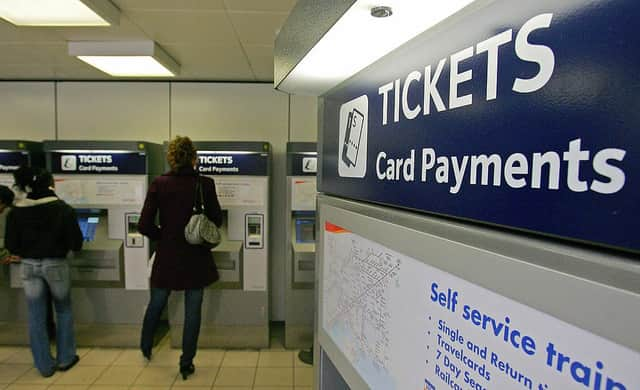Train fares could increase by 4.8% next year in biggest rise in a decade


Train passengers could see fares rise by up to 4.8 per cent next year, marking the biggest increase in costs in a decade.
Rising costs are usually linked to the July’s Retail Prices Index (RPI) measure of inflation, which the Office for National Statistics confirmed as 3.8 per cent for July 2021 on Wednesday (18 August).
‘No decision has been made’
Advertisement
Advertisement
While the government is yet to announce how much rail fares will rise next year, they are usually increased every January based on the RPI measure of inflation for the previous July.
However, due to the coronavirus pandemic, the increase to fares this year was delayed until 1 March.
Ticket prices in England and Wales rose by an average of 2.6 per cent in March, representing RPI for July 2020 plus one percentage point.
If a similar approach is used again next year, this would mean rail passengers would see fares rise by an average of 4.8 per cent, which would mark the largest increase since 2012.
Advertisement
Advertisement
Increases in the cost of rail fares are controlled by the UK, Scottish and Welsh governments.
In Scotland, passengers have fared better this year, with the rise in costs being slightly smaller than England and Wales.
The Scottish government imposed increases of 1.6 per cent for peak travel and just 0.6 per cent for travelling off-peak.
A spokesman for the UK Government’s Department for Transport said: “No decision has been made on national rail fares.
Advertisement
Advertisement
“The government is considering a variety of options and we will announce our decision in due course.”
Calls for fares to be frozen
Pressure group Campaign for Better Transport (CBT) is calling for rail fares to be frozen in a bid to both cut carbon emissions from transport, and encourage commuters to return to towns and cities.
Paul Tuohy, chief executive of the group, said: “In the face of a climate emergency, the government should be doing everything it can to encourage people to choose low-carbon public transport by making it the cheapest option, not hiking rail fares.
"If the government can freeze fuel duty for 10 years, it can freeze rail fares next year to help encourage more people to use the trains and get commuters back spending in our towns and cities.”
Advertisement
Advertisement
The Rail Delivery Group has also called on the government to encourage more low-carbon travel, adding that lower train fares could help to lure people away from cars and planes.
Robert Nisbet, director of nations and regions at the industry body, explained: “Now, more than ever, it is government that controls changes to rail fares and it has yet to decide what will happen next year.
“While government rightly decides the balance between how much farepayers and taxpayers contribute to running the railway, any decision should be viewed against the decade-long freeze in fuel duty and Government proposals to cut air passenger duty for domestic flights.
“Getting people out of cars and planes is essential to meet net-zero targets.”
This article originally appeared on our sister site, NationalWorld.